- Home
- James Hadley Chase
1957 - The Guilty Are Afraid Page 12
1957 - The Guilty Are Afraid Read online
Page 12
He came back within the half-hour.
He was carrying a brown paper parcel under his arm and as he sat down opposite me he put out his big hand, palm upwards.
“You owe me twenty bucks.”
I took out my billfold, parted with four five-dollar bills and asked, “What does that buy me?”
He put the parcel on the table.
“A guy I know is in the brandy trade. He wants to get his liquor into the club. He hasn’t a hope, but he doesn’t seem to realize it. I kidded him you could get a sample bottle of the stuff before the management. This is it.” He tapped the parcel. “For the love of Mike, don’t drink it. It’ll raise callouses the size of tomatoes in you if you do.” He felt in his vest pocket and put a card on the table. “That’s his trade card. Now it’s up to you to take it from here.”
I picked up the card and stowed it away in my billfold.
“That’s just what I’m looking for. Thanks a lot. Well, if I’m going, I’d better go.”
“The hunk of beaten-up meat I’ll find outside the Ritz-Plaza with his brains beaten in will be you,” Greaves said soberly. “You insured?”
“You don’t have to worry about me,” I said, and picked up the parcel. “I’ve been in plenty of tough spots in my time.”
“But none tougher than this, brother,” Greaves said with feeling. “And don’t kid yourself that you have.”
II
There was a fat, elderly man guarding the goods entrance to the hotel. He gave me a sour look as I came into his vision.
“This right for the Musketeer Club?” I asked, coming to rest before him.
“Could be,” he said. “What’s it to you?”
I poked the trade card under his nose and let him browse over it.
“I have a date with the wine waiter. Big deal, pop. You’re holding up the wheels of commerce.”
He sneered at me, then jerked his thumb to the elevator.
“There’s the elevator. Right the way to the top.”
He went back to his day dreams. They couldn’t be anything to get excited about, but probably they amused him. I got into the elevator, pressed the button marked Musketeer Club and leaned against the wall while I was hauled up into the stratosphere. It took time. This was a goods elevator: there was nothing express about it. As I went up, I put my hand inside my coat and touched the butt of the .38 I had strapped on before leaving my hotel. The cold feel of the gun butt gave me a little comfort, but not much.
After what seemed an age, the elevator came to a stop and the doors slid back. My wristwatch showed me that it was exactly seven o’clock.
Facing me was a small lobby stacked with wooden cases and waiting, a cigarette hanging from his thin lips, was the character Greaves had told me about: Harry Bennauer. He was a pint-size hunk of humanity, wearing a white coat and black trousers. His face was something a headhunter from Borneo would have been proud to have added to his collection. The sunken eyes, the thin lips and the flared nostrils were arresting but scarcely beautiful.
I stepped out of the elevator and smiled at him.
“Let’s have the dough, bud,” he said, “and snap it up.”
I produced five five-dollar bills and offered them to him.
His face hardened.
“What’s this? Greaves said fifty.”
“Greaves also said you weren’t to be trusted, bud,” I said. “Half now, half later. I want to look this joint over. On my way out you collect the other half.”
“You go beyond that door and you’ll walk into trouble,” he said, putting the bills hurriedly into his hip pocket.
“You’re the boy who is going to keep me out of trouble,” I said. “What do you think you’re getting fifty bucks for? Is there anyone around out there?”
“Not right now, but they will be in about ten minutes. The boss is in his office.”
“Cordez?”
He nodded.
“The wine waiter here yet?”
“He’s in his office too.”
“Well, okay, you go ahead and I’ll follow you. If we run into trouble I’m here on business with the wine waiter. I’ve got a sample for him.”
Bennauer hesitated. I could see he didn’t like this set-up, but he wanted the other twenty-five bucks. I had an idea greed would win, and it did.
He went through the doorway. I gave him a few seconds start, then I went after him. We went down a passage to another door and into a vast cocktail lounge that was really something. It was the most elaborately equipped bar I have ever been in. There was seating for about three hundred people. The bar, shaped like the letter S, ran the length of two of the walls. The floor was made of black glass. Half the room had no roof and overhead I could see the stars. There was a terrace overlooking the sea and the ten—mile promenade. Banana and palm trees grew in enormous tubs. Flowering creepers covered the roof and the walls with a multitude of red, pink and orange blossoms.
I joined Bennauer by one of the palm trees.
“The offices are through there,” he said, pointing to a door behind the bar. “The restaurant is thataway. What else do you want to see?”
“I’d like a souvenir to take away,” I said. “Get me some of those match-folders you hand out to the boys and girls.”
He looked as me as if he thought I was crazy, but he went over to the bar, went behind it and produced a handful of the folders.
“This what you mean?”
I joined him. I took three from him, opened them and checked the back of the matches. There were no ciphers printed on them.
“This all you’ve got?”
“What do you mean? They’re match-folders, ain’t they? That’s what you asked for, isn’t it?”
“Is there any other type: the ones the boss gives away?”
“Look, Joe, cut it out, will you?” His face was beginning to grow shiny with sweat. “I’d lose my job if you were found in here. Take your goddamn matches and beat it.”
“Any chance of looking in some of the offices?” I asked. “I’d spring another fifty if I could.”
I could see he was rapidly losing his nerve by now.
“You’re nuts! Come on, get the hell out of here!”
Then the door behind the bar, the one Bennauer had told me led to the offices, opened, and a fat man wearing a white coat on which was a badge bearing a beautifully embroidered bunch of grapes to tell me he was the wine waiter came into the bar.
He was a Latin type with thick, heavily oiled hair and a Charlie Chan moustache. His small black eyes moved from Bennauer to me and the muscles of his face, under their covering of fat, tightened.
Bennauer didn’t entirely lose his head. He said, “Here’s Mr. Gomez now. You’ve got no business to barge in here without an appointment.” He turned to Gomez. “This guy wants to talk to you.”
I gave the fat Latin a servile smile.
“Could you spare me a moment of your time, Mr. Gomez? I’m O’Connor: Californian Wine Co.”
As Gomez moved over to me, I produced the trade card and laid it on the bar. He picked it up with fat fingers and studied it: his face was as expressionless as a hole in a wall. I could smell the pomade with which he had soaked his hair: it wasn’t a particularly pleasant smell. Having read the card, he turned it on its edge and began to tap with it on the counter while he looked me over.
“I have no account with your people,” he said.
“That’s something we want to put right, Mr. Gomez. We have several lines that would interest you. I’ve brought a bottle of our very special brandy for you to try.”
His black eyes moved to Bennauer.
“How did he get in here?” he asked.
Bennauer had got his second wind by now. He shrugged his shoulders.
“I was here and he just walked in and asked for you.”
“I came up in the goods elevator. The guy on the door downstairs told me to come up,” I said. “Did I do wrong?”
“I don’t see any salesman with
out an appointment.”
“I’m sorry, Mr. Gomez. Maybe you could give me a date for tomorrow.” I put the parcel on the counter. “If you could look at this in the meantime, we might be able to talk business tomorrow.”
“We’ll talk business now,” a voice said behind me.
Both Gomez and Bennauer became as rigid as marble statues. Okay, I admit my heart did a back flip. I looked over my shoulder.
A dark man in a faultless tuxedo, a white camellia in his buttonhole, stood about twenty feet from me. He had the face of an eagle, narrow with a big, sharp nose, a thin mouth and black restless eyes. He was thin and tall; the South American type that women rave about and men watch uneasily when they are raving.
I was pretty certain this was Cordez. These other two wouldn’t be behaving as if they were in the presence of a real hot shot unless he was.
The tall man moved up to the bar, held out a brown, thin hand for the card Gomez was holding. Gomez gave it to him. He stared at it, then with no change of expression he bent it in two and flicked it behind the bar.
“That . . .” he said, and pointed to the brown paper parcel on the counter.
Gomez hurriedly stripped the wrapping off the bottle and laid the bottle on the counter so Cortez could read the label.
He read it, then he turned sleepy black eyes on me.
“I said no to this a month ago,” he said. “Don’t you know what ‘no’ means?”
“Why, I’m sorry,” I said. “I’m new to this territory. I didn’t know someone had shown it to you before.”
“Well, you know now. Get out of this club and stay out!”
“Why, sure. I’m sorry.” I made out I was pretty confused. “Maybe if I leave the bottle . . . it’s pretty good brandy. We could supply it on very favourable terms.”
“Get out!”
I stepped away from the bar, turned and started across the vast acreage of black glass. I hadn’t taken six steps when I became aware that three men in tuxedos had appeared. They stood in a semicircle, blocking the way out.
Two of them I had never seen before. They were big, beefy Latin-Americans. Their faces were hard and expressionless. The third man, standing between them, a snarling grin on his broken face, made me feel suddenly a little weak at the knees.
It was Hertz.
III
For a long moment Hertz and I stared at each other. His tongue came out and went over his thick lips, the way a snake flicks out its tongue before it strikes.
“Hello, peeper,” he said softly. “Remember me?”
I remembered him all right.
I hadn’t reckoned on being bounced by Hertz. I had been prepared to be roughed up a little and shot out on my tail on the hard, cold sidewalk, but having Hertz in it as well hadn’t come into my calculations.
I did some rapid thinking. I moved sideways so I could see Cordez while at the same time I could watch Hertz.
Cordez said, in his flat, bored voice, “What is this?”
“The creep’s name is Brandon,” Hertz said. “He’s a shamus. He’s that punk Sheppey’s sidekick.”
Cordez stared at me, his eyes completely impersonal, then he lifted his shoulders, walked around the bar and made for the door leading into his office. There he paused, looking at Hertz.
“Get him out of here.”
Hertz smiled.
“Sure,” he said. “Give me a little room, boys, I want to take this baby on my own.”
He waved the other two hunks of beef aside, and still smiling, his close-set eyes glittering, he came across the glass floor towards me.
There were five against one; six if Mr. Cordez would condescend to join in, and that seemed to me overdone odds. I equalized the situation by sliding my hand inside my
coat and throwing my .38.
“Relax,” I said, and let the gunsight swing in a semicircle to cover Hertz, the two toughs, Gomez, Bennauer and Cordez. “Don’t let’s have any rough stuff or there could be some damage around here.”
Hertz came to an abrupt stop as if he had walked into a brick wall. He stared at the gun as if it were the last thing he expected to see.
Cordez paused, his hand on the doorknob, his eyes on my face.
The two musclemen remained motionless. They were professionals, and they were quick to realize I would shoot if I were crowded.
Cordez moved back to the bar and leaned against it.
“I told you to get out, didn’t I?” he said. “Well, get out!”
“Keep this ape out of my way and I will,” I said, nodding at Hertz.
Then the lights went out.
Maybe that was Gomez’s contribution to the tableau. I shall never know. I heard a quick patter of feet and I squeezed the trigger. An orange spurt of flame came from the gun and the bullet smashed a mirror somewhere ahead of me. Then a wave of bodies rolled over me, taking me to the floor. Hands groped for my throat, my arms, my wrists. I was squeezing the trigger again as the gun was wrenched out of my hand. A fist that felt more solid than a lump of pig-iron smashed against the side of my head.
A boot thumped into my side as someone fell over me.
I hit out blindly. My fist hit a face, and there was a grunt.
Something whistled past my face and made a dull thud on the glass floor. Hands found me. I fought, kicked out and mentally cursed, then a fist slammed me on the side of the jaw and that was that.
Lights came on again.
I lay on my back staring up at the two thugs and Hertz.
One of the thugs had my gun which he held down by his side.
My jaw ached and my head felt as if it were bursting. I heard the sound of footsteps across the glass floor. Cordez joined the happy band. His thin face was still indifferent, still without expression.
I pushed myself to a sitting position, my hand holding my aching jaw.
“Take him away and dump him,” Cordez said. “Make sure he doesn’t come back.”
He turned and walked away. It was then that I saw he was wearing very high-heeled shoes: just another phony who wanted to look better than he was.
Neither Hertz nor the two thugs moved until Cordez had gone through the doorway at the back of the bar. Gomez and Bennauer had already faded out of sight.
Hertz held out his hand for my gun and the thug who was holding it gave it to him. I watched Hertz slide the gun through his fingers until he was holding it by the barrel. All the time he stared at me, a meaningless smile on his moronic, battered face.
I had shaken off the effects of his punch by now. The movement he was making to hold the gun by its barrel told me I was in for a pistol whipping. He was aiming to club me with the gun. An expert pistol-whipper knows how to handle the gun. He hits you in every spot except a vital one. You’re out of action for months by the time he has finished with you. The gun, used by a vicious thug like Hertz, can do a lot of damage, but it needn’t be lethal.
I had served five years as a special investigator to the D.A.’s office in San Francisco. If you think there is any tougher place than San Francisco’s dock-land, tell me and I’ll keep clear of it. For five years I had rubbed shoulders with thugs like Hertz. So long as he didn’t get behind me, I wasn’t all that scared of him.
But I let him think I was.
As he swung the gun in his hand, I squirmed away, horror on my face.
“Let me out of here,” I whined. “I won’t make any trouble. Just let me out of here.”
Hertz’s grin widened.
“You’re going, pally,” he said in his soft, moronic voice. “And you’re going my way.”
He gave me time to squirm further from him. He even gave me time to get to my feet. Then he came dancing in, his ruined face alight with fiendish happiness as he swung the butt of the gun towards my head.
I timed it right. Just when he should have connected I shifted. The gun-butt flashed past me, his arm thumped on my shoulder and that brought him close to me. I grabbed hold of his coat lapels, bent my knees, leaned against h
im and heaved. He sailed over my head with the grace of an acrobat, arrived on his mouth and his nose on the glass floor with a crash that rocked the bottles on the shelves behind the bar, and slid along the floor to land with his head squarely connecting with the bar counter.
I went for one of the thugs the way a fighting bull goes for a matador. He swerved aside, his eyes bulging. But I wasn’t after him. That was just a feint. I was after his pal. He was standing close by, and he was totally unprepared. My fist caught him on the side of his jaw: a beautiful punch with all my weight behind it, and it lifted him off his feet and sent him sliding along the glass floor to take a toss that ended up with his head hammering against the wall. The contact between his head and the wall made such a mellow, lovely sound, I knew he would be out of action for some time.
That left the other thug.
He came at me like an enraged elephant. It was good to see the startled fear in his face. I slid under his right lead and thumped him in his ribs, sending him backwards. Then I dived for his ankles, grabbed them and jerked him upwards. The bang his skull made on the floor made even me wince. He gave one spasmodic heave of his body and then stiffened out cold.
I paused and looked over at Hertz. He was still counting stars, huddled up against the bar counter. I went over to him, took my gun out of his limp grasp, shoved it into my holster, than taking him by his ears, I lifted his head and connected it with the floor. He flopped around for a brief second like a landed trout, then went limp.
I stepped back and surveyed the wreckage. All this had taken about eighty seconds, no more; and I felt quite pleased with myself. I hadn’t had a rough house like this for four or five years. At least it showed me that I hadn’t lost my grip.
I now had two alternatives: I could either get out fast or I could remain on the premises, out of sight, in the hope of picking up some worthwhile information. Up to this moment I hadn’t found anything worth the risk of getting my neck broken. I decided, as I might never again get the chance of crashing this club, I had better stick around.
But where to hide?
I ran across the glass floor out on to the terrace. I could see a row of lighted windows to my right. Unless my geography had gone awry, these would be the windows of the club’s offices. I saw there was a wide ledge running below the windows. I looked up. The roof sloped gently away into the darkness. I could just make out a small flat roof at the top. It seemed to me if I could get up there, I would be out of trouble for a while, and when the club got busy, I had a chance of exploring without attracting attention.

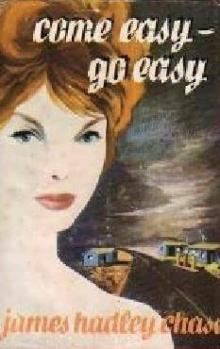 Come Easy, Go Easy
Come Easy, Go Easy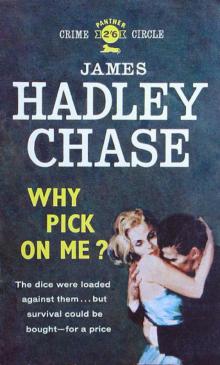 Why Pick On ME?
Why Pick On ME?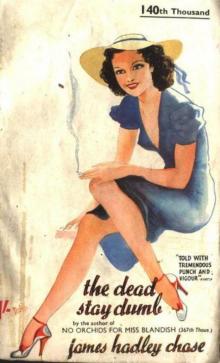 The Dead Stay Dumb
The Dead Stay Dumb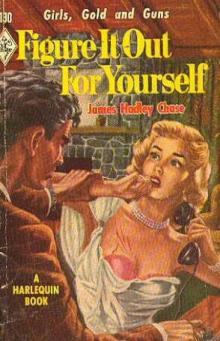 Figure it Out For Yourself
Figure it Out For Yourself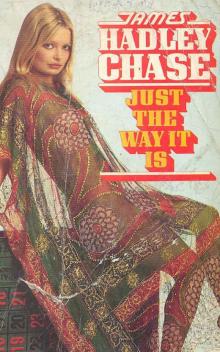 1944 - Just the Way It Is
1944 - Just the Way It Is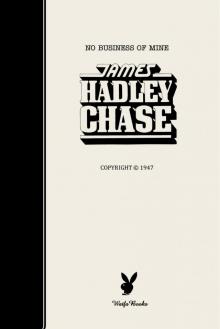 No Business Of Mine
No Business Of Mine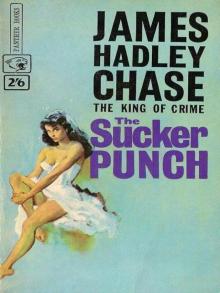 1953 - The Sucker Punch
1953 - The Sucker Punch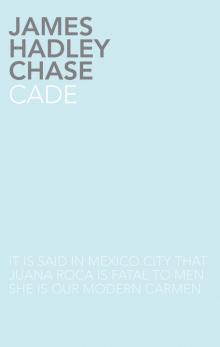 Cade
Cade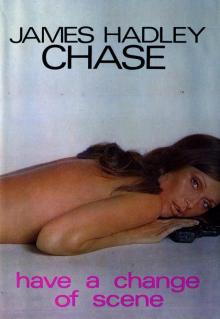 1973 - Have a Change of Scene
1973 - Have a Change of Scene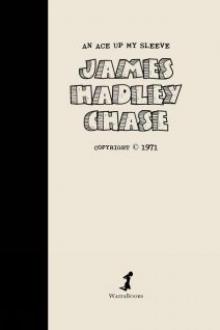 An Ace up my Sleeve
An Ace up my Sleeve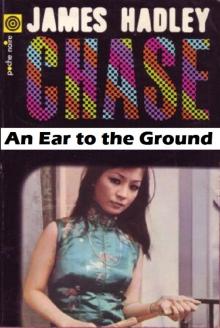 1968-An Ear to the Ground
1968-An Ear to the Ground 1950 - Figure it Out for Yourself
1950 - Figure it Out for Yourself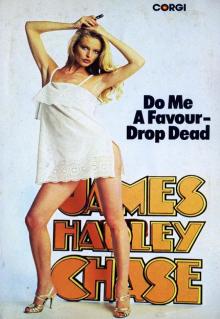 1976 - Do Me a Favour Drop Dead
1976 - Do Me a Favour Drop Dead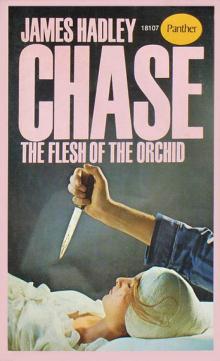 The Flesh of The Orchid
The Flesh of The Orchid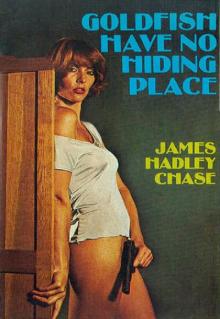 1974 - Goldfish Have No Hiding Place
1974 - Goldfish Have No Hiding Place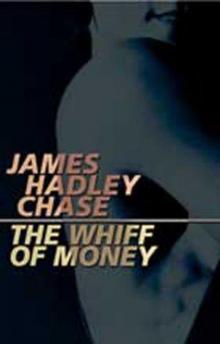 Whiff of Money
Whiff of Money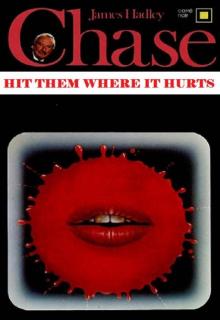 1984 - Hit Them Where it Hurts
1984 - Hit Them Where it Hurts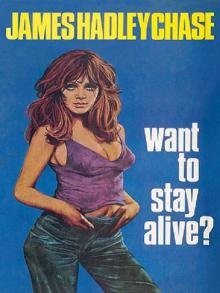 1971 - Want to Stay Alive
1971 - Want to Stay Alive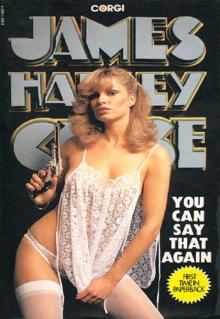 1980 - You Can Say That Again
1980 - You Can Say That Again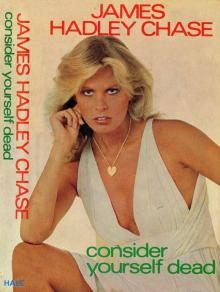 1978 - Consider Yourself Dead
1978 - Consider Yourself Dead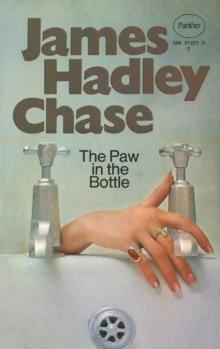 The Paw in The Bottle
The Paw in The Bottle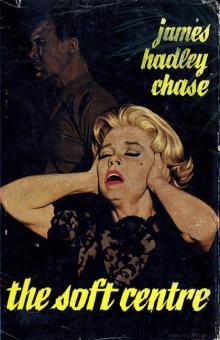 Soft Centre
Soft Centre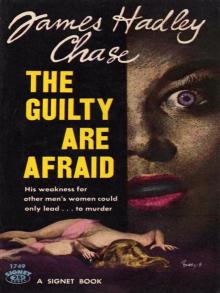 The Guilty Are Afraid
The Guilty Are Afraid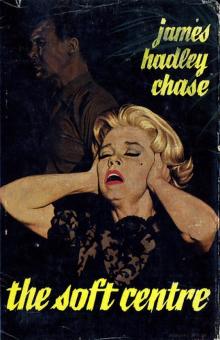 The Soft Centre
The Soft Centre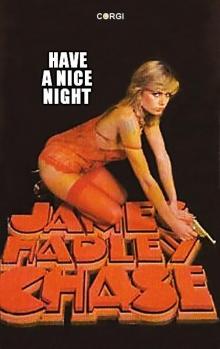 Have a Nice Night
Have a Nice Night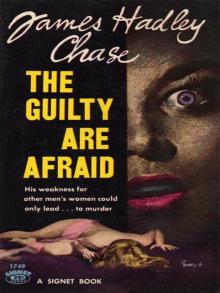 1957 - The Guilty Are Afraid
1957 - The Guilty Are Afraid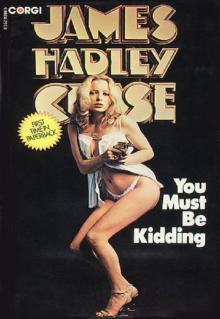 1979 - You Must Be Kidding
1979 - You Must Be Kidding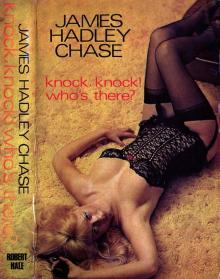 Knock, Knock! Who's There?
Knock, Knock! Who's There?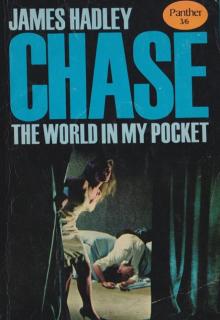 1958 - The World in My Pocket
1958 - The World in My Pocket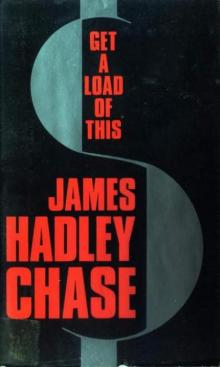 Get a Load of This
Get a Load of This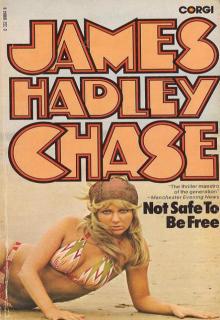 1958 - Not Safe to be Free
1958 - Not Safe to be Free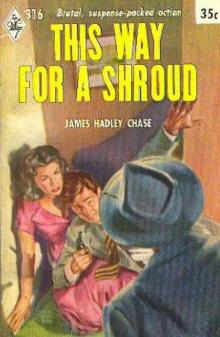 This Way for a Shroud
This Way for a Shroud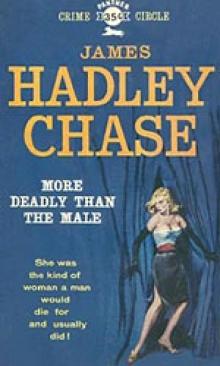 More Deadly Than the Male
More Deadly Than the Male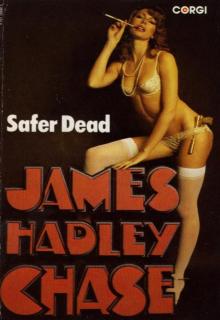 Safer Dead
Safer Dead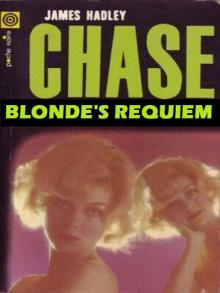 1945 - Blonde's Requiem
1945 - Blonde's Requiem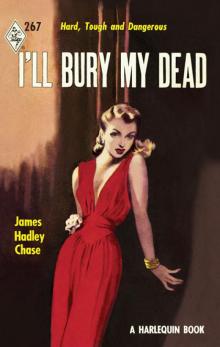 I'll Bury My Dead
I'll Bury My Dead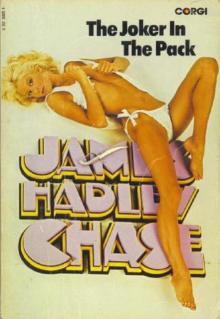 1975 - The Joker in the Pack
1975 - The Joker in the Pack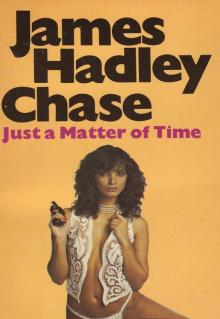 1972 - Just a Matter of Time
1972 - Just a Matter of Time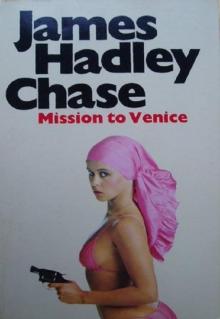 1954 - Mission to Venice
1954 - Mission to Venice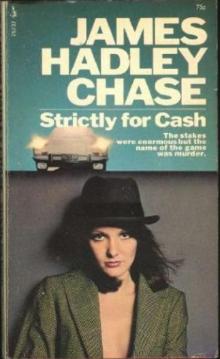 Strictly for Cash
Strictly for Cash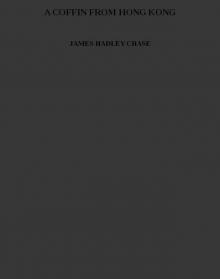 A COFFIN FROM HONG KONG
A COFFIN FROM HONG KONG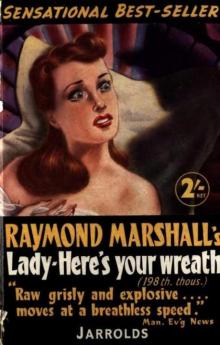 Lady—Here's Your Wreath
Lady—Here's Your Wreath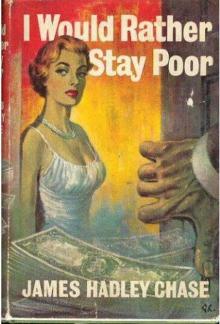 I Would Rather Stay Poor
I Would Rather Stay Poor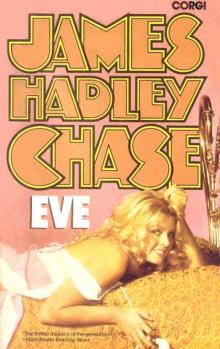 Eve
Eve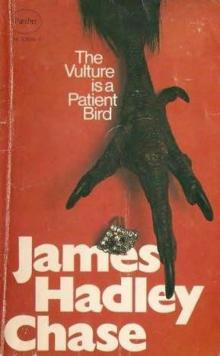 Vulture Is a Patient Bird
Vulture Is a Patient Bird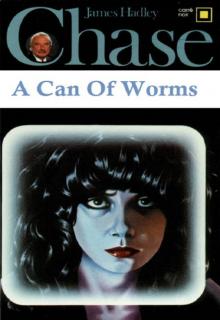 1979 - A Can of Worms
1979 - A Can of Worms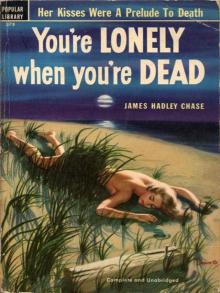 1949 - You're Lonely When You Dead
1949 - You're Lonely When You Dead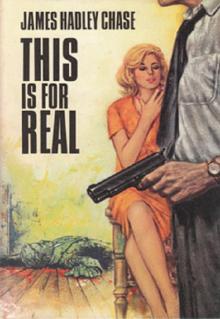 1965 - This is for Real
1965 - This is for Real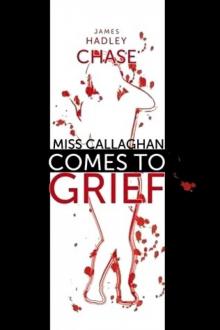 (1941) Miss Callaghan Comes To Grief
(1941) Miss Callaghan Comes To Grief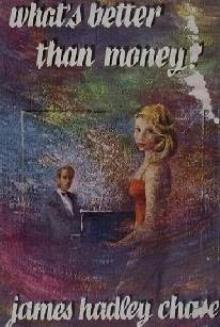 What`s Better Than Money
What`s Better Than Money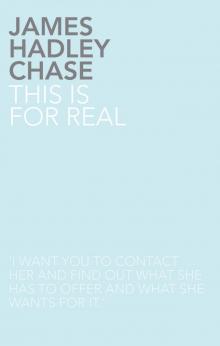 This is For Real
This is For Real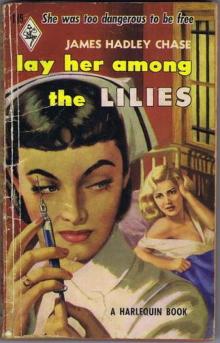 Lay Her Among the Lilies vm-2
Lay Her Among the Lilies vm-2 Knock Knock Whos There
Knock Knock Whos There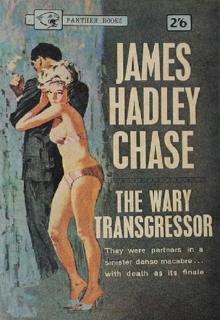 1952 - The Wary Transgressor
1952 - The Wary Transgressor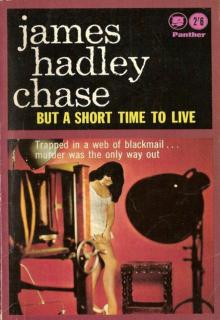 1951 - But a Short Time to Live
1951 - But a Short Time to Live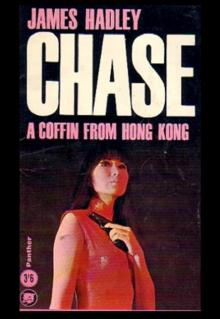 1962 - A Coffin From Hong Kong
1962 - A Coffin From Hong Kong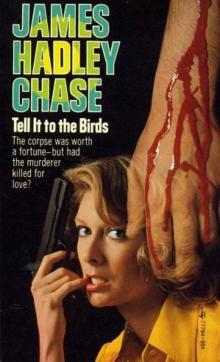 Tell It to the Birds
Tell It to the Birds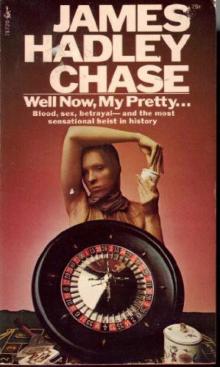 Well Now, My Pretty…
Well Now, My Pretty…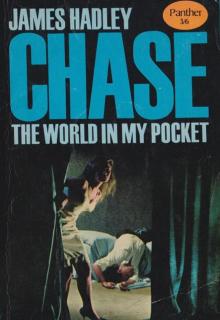 The World in My Pocket
The World in My Pocket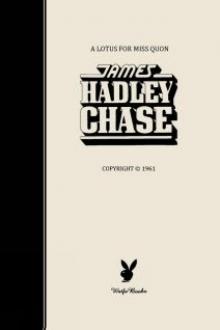 A Lotus for Miss Quon
A Lotus for Miss Quon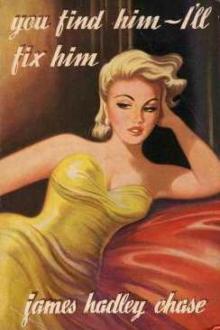 You Find Him, I'll Fix Him
You Find Him, I'll Fix Him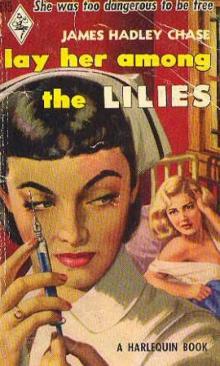 Lay Her Among The Lilies
Lay Her Among The Lilies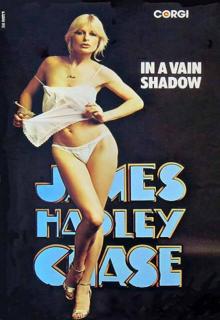 1951 - In a Vain Shadow
1951 - In a Vain Shadow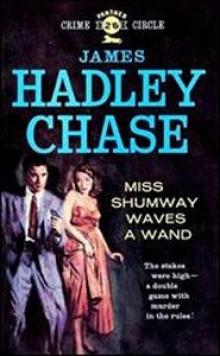 Miss Shumway Waves a Wand
Miss Shumway Waves a Wand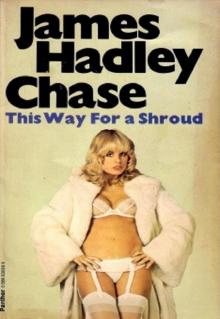 1953 - This Way for a Shroud
1953 - This Way for a Shroud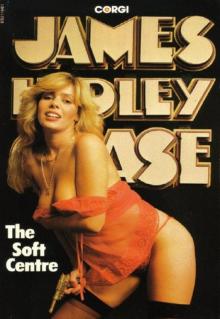 1964 - The Soft Centre
1964 - The Soft Centre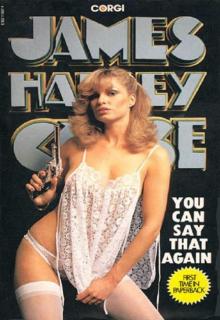 You Can Say That Again
You Can Say That Again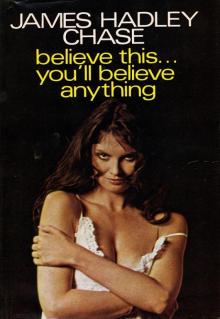 1975 - Believe This You'll Believe Anything
1975 - Believe This You'll Believe Anything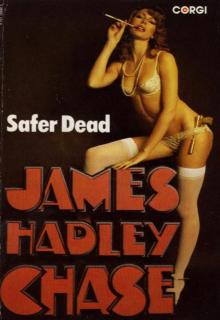 1954 - Safer Dead
1954 - Safer Dead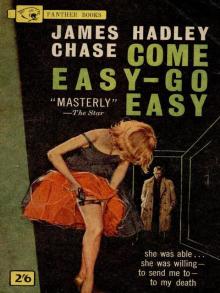 1960 - Come Easy, Go Easy
1960 - Come Easy, Go Easy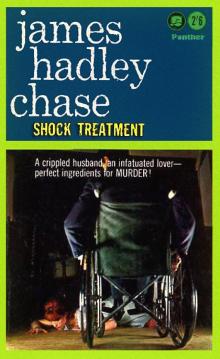 Shock Treatment
Shock Treatment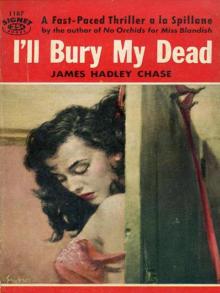 1953 - I'll Bury My Dead
1953 - I'll Bury My Dead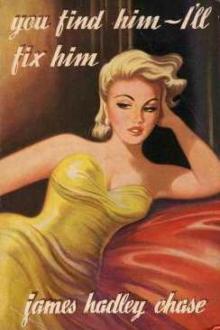 You Find Him – I'll Fix Him
You Find Him – I'll Fix Him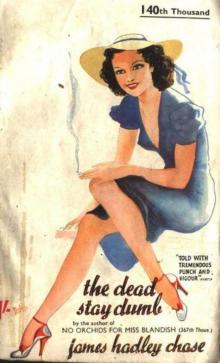 Dead Stay Dumb
Dead Stay Dumb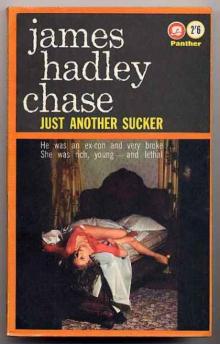 Just Another Sucker
Just Another Sucker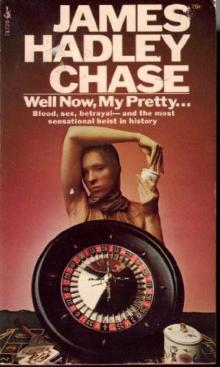 Well Now My Pretty
Well Now My Pretty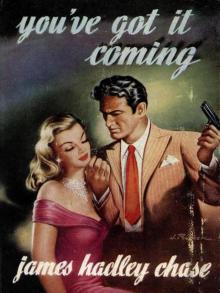 You've Got It Coming
You've Got It Coming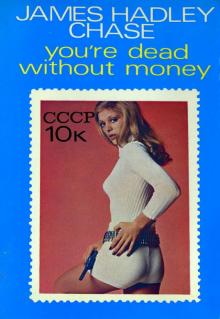 1972 - You're Dead Without Money
1972 - You're Dead Without Money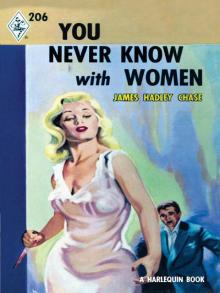 1955 - You Never Know With Women
1955 - You Never Know With Women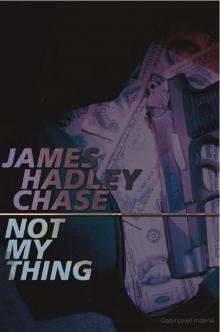 Not My Thing
Not My Thing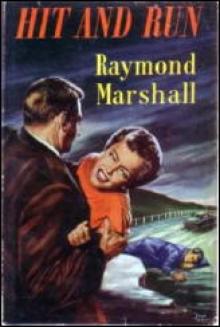 Hit and Run
Hit and Run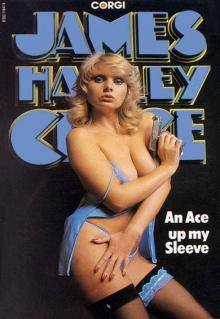 1971 - An Ace Up My Sleeve
1971 - An Ace Up My Sleeve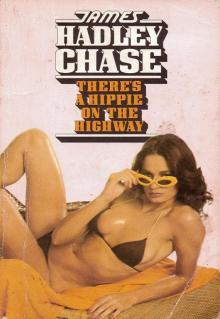 1970 - There's a Hippie on the Highway
1970 - There's a Hippie on the Highway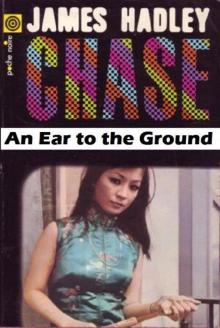 1968 - An Ear to the Ground
1968 - An Ear to the Ground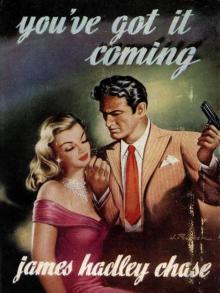 1955 - You've Got It Coming
1955 - You've Got It Coming 1963 - One Bright Summer Morning
1963 - One Bright Summer Morning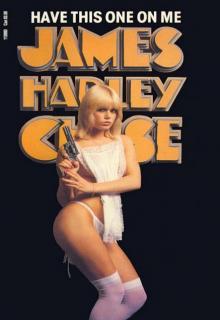 1967 - Have This One on Me
1967 - Have This One on Me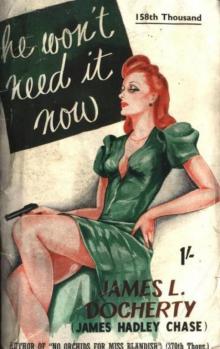 He Won't Need It Now
He Won't Need It Now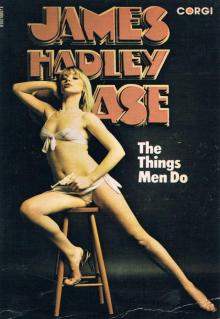 1953 - The Things Men Do
1953 - The Things Men Do Believed Violent
Believed Violent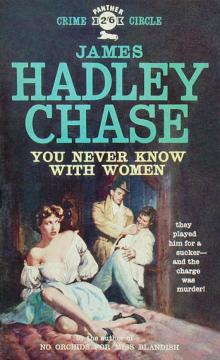 You Never Know With Women
You Never Know With Women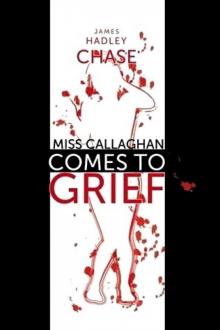 Miss Callaghan Comes to Grief
Miss Callaghan Comes to Grief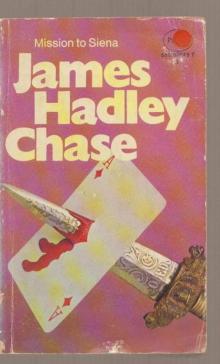 Mission to Siena
Mission to Siena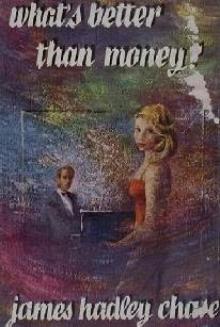 What's Better Than Money
What's Better Than Money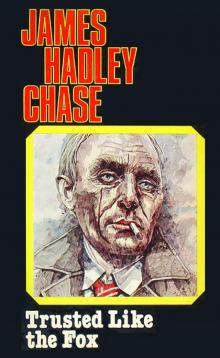 Trusted Like The Fox
Trusted Like The Fox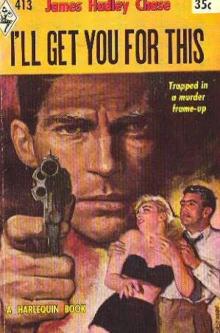 I'll Get You for This
I'll Get You for This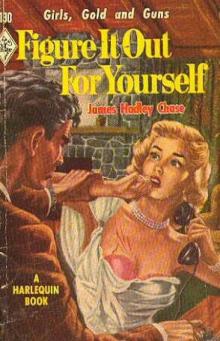 Figure It Out for Yourself vm-3
Figure It Out for Yourself vm-3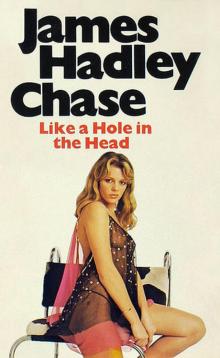 Like a Hole in the Head
Like a Hole in the Head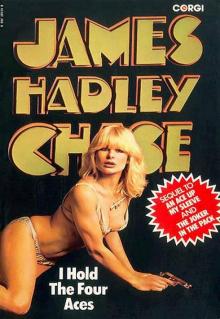 1977 - I Hold the Four Aces
1977 - I Hold the Four Aces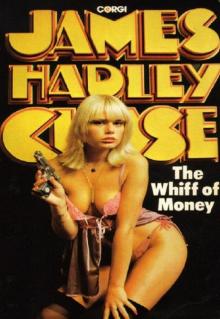 1969 - The Whiff of Money
1969 - The Whiff of Money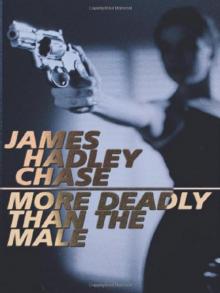 1946 - More Deadly than the Male
1946 - More Deadly than the Male 1956 - There's Always a Price Tag
1956 - There's Always a Price Tag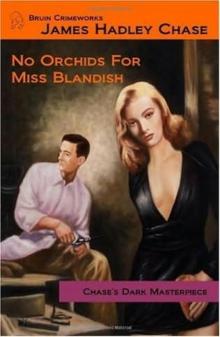 No Orchids for Miss Blandish
No Orchids for Miss Blandish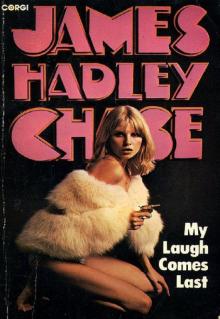 1977 - My Laugh Comes Last
1977 - My Laugh Comes Last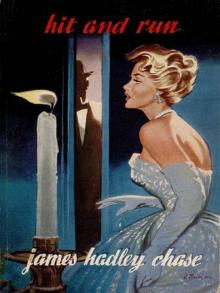 1958 - Hit and Run
1958 - Hit and Run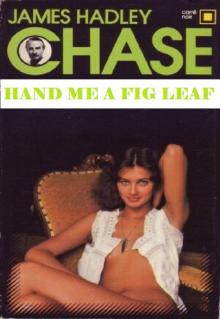 1981 - Hand Me a Fig Leaf
1981 - Hand Me a Fig Leaf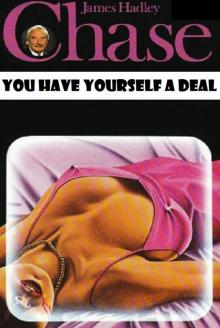 1966 - You Have Yourself a Deal
1966 - You Have Yourself a Deal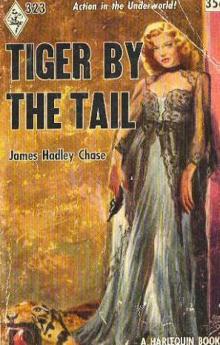 Tiger by the Tail
Tiger by the Tail